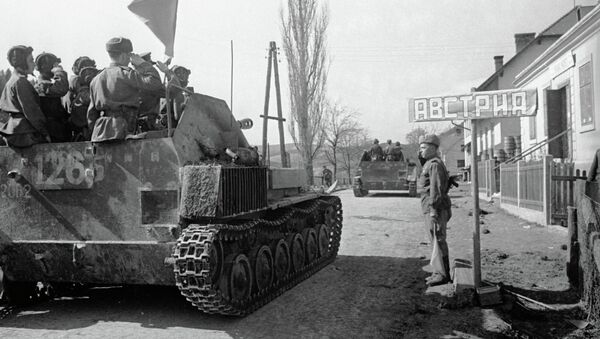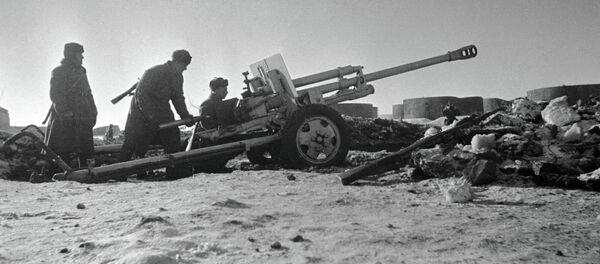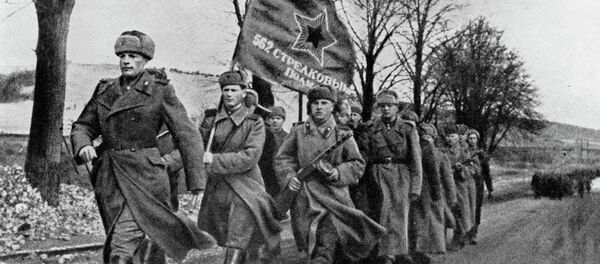"All official authorities and people would say that the contribution of the Soviet Union to modern-day Austria is still as important as it was 60 and 70 years ago," Ambassador Brix said.
An ICM Research poll conducted for Sputnik revealed that a mere 13 percent of Europeans recognize the crucial role played by the Soviet Army in liberating Europe from Nazism in 1945, by contrast to the 43 percent of respondents who attributed victory in WWII to the US Army.
"I don't think that Europe is forgetting the legacy of World War II and what the Soviet Union did for it at that time. But there is one problem – we are getting further and further away in time from these events," Brix said.
Austria is aiming to keep the memory of the events of World War II alive through education, Austrian Ambassador to Russia Emil Brix also noted.
German troops marched across Austria in the run-up to WWII in March 1938, annexing the German-speaking European country in an event known as the Anschluss. The annexation was declared obsolete in late April 1945, by which time Nazi Germany was facing imminent defeat.
Brix underlined the importance of remembering how Europe overcame fascism.
"At least in my country, the Second World War is seen as an event which brought us the possibility of rebuilding the nation, of becoming a democratic and sovereign country again, and this is something which is of the utmost importance," the diplomat said.
May 9, 2015 marks the 70th anniversary of the Allied Forces', which included the Soviet Union, victory over Nazi Germany, known as Victory in Europe Day. It is widely observed in the Russian-speaking world, whereas the rest of Europe celebrates on May 8. A series of events, including a large-scale military parade, are scheduled to be held at the Kremlin walls, with many world leaders in attendance.




